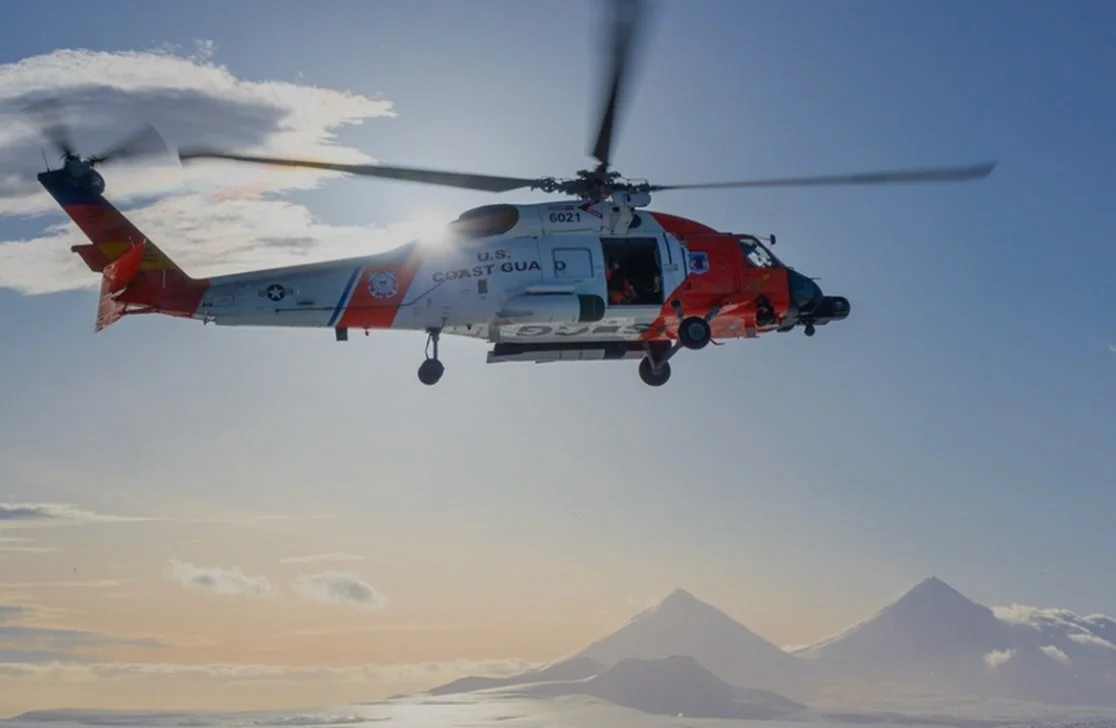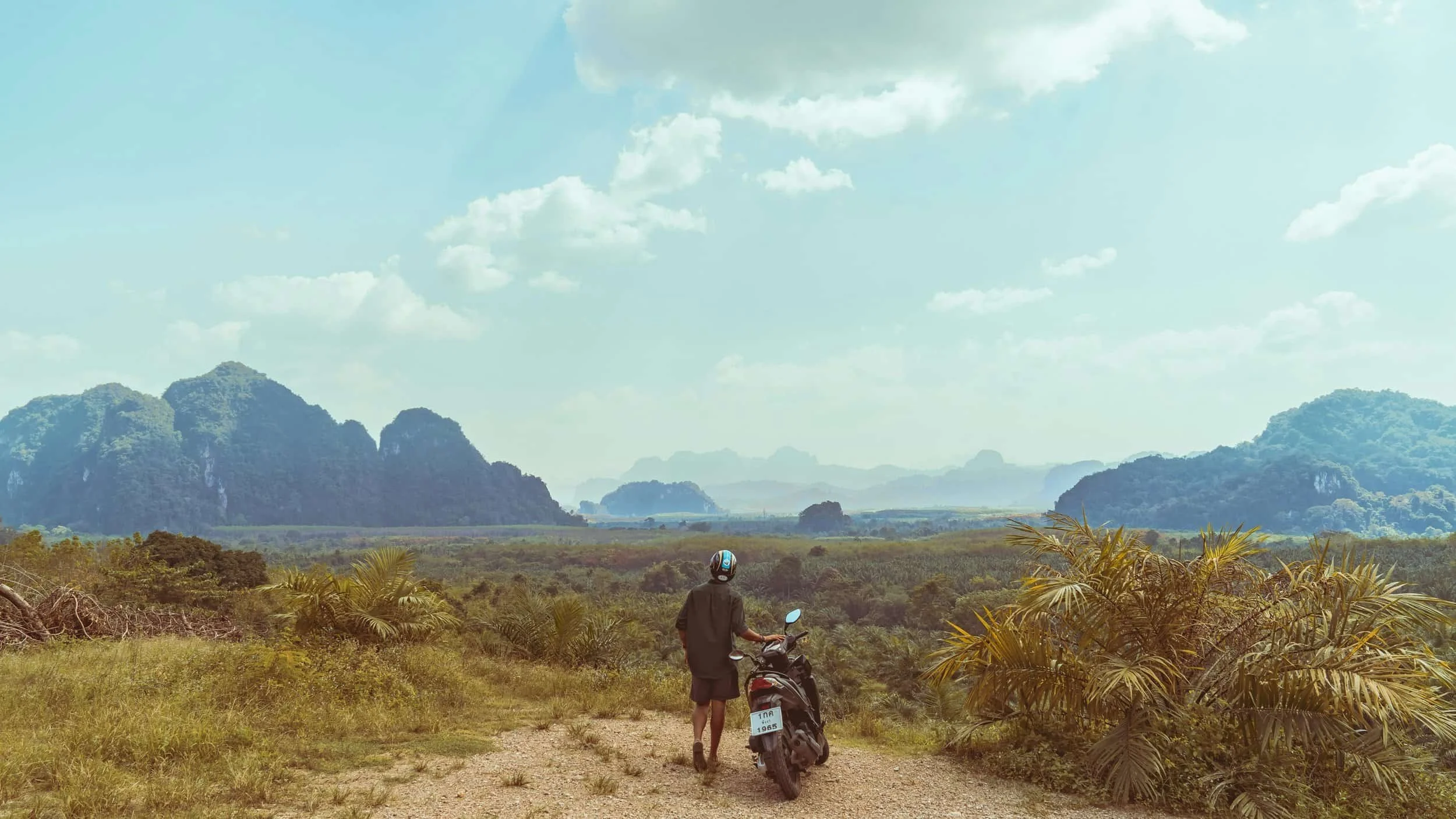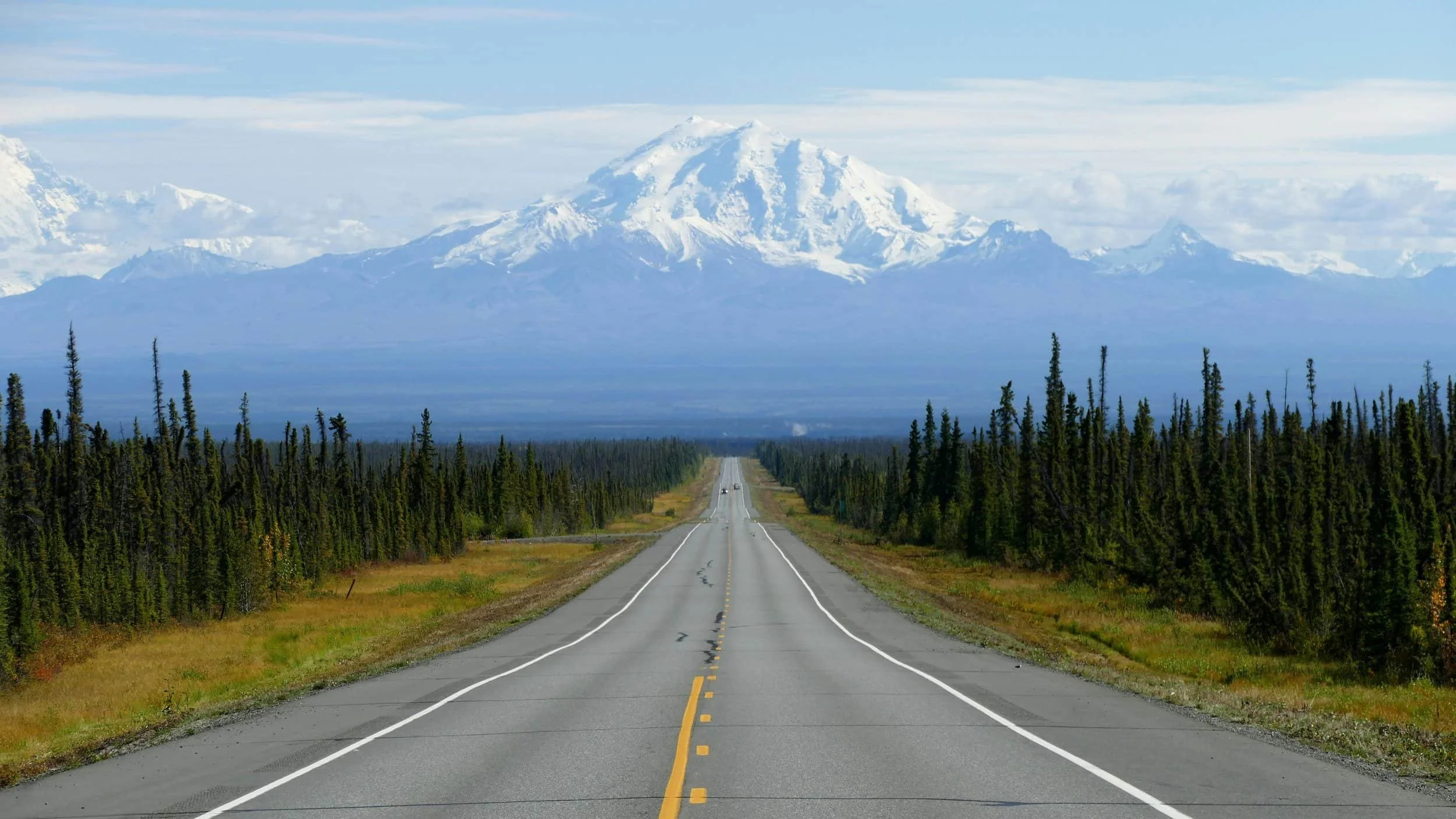Remote Wilderness Rescue and Travel Insurance: What You Need To Know
A long ways from anywhere, wandering ridge lines in Alaska
OVERVIEW
Travel insurance can be confusing no matter where you’re traveling. But if you’re headed into remote areas of the world or mountaineering in the greater ranges it get’s even more complicated to figure out what you need. (Hint: most standard travel insurance policies won’t actually cover remote rescue regardless of what country you’re in… I’m looking at you World Nomads.) I’m generally the type of person who tries to avoid over-insuring myself. But when it comes to remote rescue insurance, it just makes sense. A single remote rescue in America can easily cost well over 40,000 USD. I work as a full time mountain guide, so it’s a no brainer for me. But I also strongly recommend it to all my clients, even for shorter week-long trips. This guide applies to anyone headed out on a remote trip whether backpacking, high-altitude mountaineering, or really anything where a hospital is a long ways away.
Pro Tip 1: Practically no guide company or tour operator will cover the costs of a rescue should you need one whether or not they recommend you to get rescue insurance.
Pro Tip 2: Nearly all travel insurance policies say they cover “Emergency Evacuation.” What they actually mean is that they’ll cover your transport from one hospital to another if and only if the local doctor says you need a higher level of care. The Emergency Evacuation does not cover the cost of getting you to the first local clinic or hospital from the site of injury or accident. This kind of blew my mind. Surely thousands of people are buying these policies without understanding the meanings of their (intentionally?) confusing syntax.
Pro Tip 3: It’s very common for Travel Insurance Companies to have abysmal ratings. I think two things are happening here. 1. There’s plenty of shoddy companies whose entire model is built around collecting premiums and never paying claims. Or making it so hard and tiresome to make a claim that you eventually give up. BUT… there are also a lot of people who buy policies on faith alone without reading the fine print or really making an effort to understand what the policy covers. Unfortunately, this is not a good industry to be super trustful as a consumer.
Pro Tip 4: One common loophole with rescue insurance is how rescues are arranged. Many companies require you to initiate the rescue directly through them, or they won’t cover the costs. Make sure you fully understand the details of your policy.
Disclaimer: I’ve really done my best to bring clarity to a confusing industry… but it’s up to you to confirm the truth as it applies to the policy you get for the specifics of your adventure.
After a lot of research and time on the phone with insurance companies, I want to lay everything out here for my guests and anyone on the internet wondering what they should get for themselves. I’ll try to keep it short and simple while still being comprehensive. Or skip to the end for my recommendations.
RESCUE VS. TRAVEL INSURANCE: WHAT’S THE DIFFERENCE?
This might get confusing, bear with me! Really we’re talking about four different things. I might make up some new terms to help clarify a confusing market.
Remote Rescue: First is Remote Rescue: you’re backpacking in Alaska or Pakistan, you get injured or sick and you need evacuation. Remote rescue insurance will cover the bill to get you out and cared for. Think helicopters, SAR teams, medical care, etc.
Rescue Light: Basically the same thing as Remote Rescue, except not remote. You’re backpacking to Everest Basecamp, get a severe stomach bug and need helicopter evac. Or you’re motorcycling through Thailand and get in a bad crash and need to go to the hospital. This insurance category theoretically covers those medical and transport bills. Many will also cover the bill to fly you to a location with a higher standard of care. Importantly though, most of these policies vaguely exclude remote rescue. And many “rescue light” companies have a pretty terrible track record of paying claims.
Trip Insurance: This type of insurance reimburses you if you need to cancel a trip for an approved reason. Say you book a guided trip through Indigo Alpine Guides. Three days before you’re scheduled to go on a trip of a lifetime, you sprain your ankle so bad you can’t walk. Unfortunately, we can’t refund your money so close to departure, but if you bought trip insurance you’ll get all your money back. Many companies also offer a cancel-for-any-reason policy that will reimburse you 75% of the trip. But these policies are pricey.
Combo Insurance: Most policies out there (particularly the ones on the first page of Google) are combinations of what I’m calling Rescue Light and Trip Insurance. They’ll coordinate and pay for your rescue and medical care (with lots of exceptions) and they’ll reimburse you if your trip gets canceled / delayed / etc. Squaremouth, World Nomads, and Safety Wing are three of the biggest players here.
If you’re going on a trip to any country not on the excluded list (Afghanistan, Pakistan, etc), not going into remote areas, and not doing high risk activities (paragliding, base-jumping, etc), getting a Combo Insurance plan from a Squaremouth, World Nomads or Safety Wing makes some sense. They are typically much cheaper than remote rescue policies. That being said, now that we know the different kinds of insurance available, we’re going to focus in on Remote Rescue Insurance, Trip Insurance, and Mountaineering Insurance for remote outdoor adventures.
DO I ACTUALLY NEED RESCUE / TRIP INSURANCE ?
(Before I go any further, let me say that I do get a small commission from Global Rescue (at no extra cost to you) if you use my affiliate link. If you appreciate the article, please do use my link! But truly and honestly, that’s not going to change the outcome of this review… as proven by the fact that Global Rescue actually isn’t my main rec.)
Whether you need Rescue or Trip Insurance for your remote expedition comes down to a few factors.
First a note on guided adventures. Many people go on guided adventures just assuming the guide company’s insurance would kick in and cover a rescue. For the vast vast majority of guide companies that is not the case. But for whatever reason companies don’t always make this obvious, and so many people go on trips unknowingly uninsured.
Do I Actually Need / Want Remote Rescue Insurance
Are you traveling in your home country or abroad? In America, many rescue happen for free. But also many don’t. It’s a bit of a mystery to figure out what a hypothetical rescue would cost you in this country. I don’t like to gamble with that situation, so I chose to ignore all the stories about free rescues and keep insurance anyways. If you’re traveling abroad and remote, then the probability you want insurance goes up. I love traveling to wild and remote parts of wild and undeveloped countries, but the idea of being stuck in a local hospital because I can’t afford to pay the exorbitant costs of medical transport to higher standard of care doesn’t sound fun. Maybe that sounds messed up, but it’s true for me.
Would a surprise 40k USD bill (or much higher if you need international cross-border medically-supervised transport) be devastating to you or just inconvenient? Really this is what it most comes down to… your personal finances and risk tolerance.
Will you be more relaxed and more able to enjoy the massive wilderness knowing that you’re covered in the unlikely chance you need a rescue?
Are you doing extreme activities that have a high likelihood of moderate to serious injury?
Trip Insurance
This one is really just a financial question. How bummed / negatively impacted would you be to lose all the money you spent on your upcoming trip due to injury, illness, etc. Just this last summer I had two folks both get really sick right before a scheduled expedition. On my recommendation they had bought, (several months prior) a trip insurance policy for $260 for both of them. As a result they got the full $9000 for the trip back. Pretty sweet. Generally the longer you wait to buy trip insurance the more expensive it gets. Some companies won’t sell it to you at all more than a month after you’ve put money down for a trip. Buy it right when you book your trip.
REMOTE WILDERNESS RESCUE POLICIES I RECOMMEND
1st Place: Garmin InReach
If you already own an InReach and just need remote rescue (not trip insurance), then get the SAR 100 plan. It’s pretty cheap at $40 / year for 100k in coverage.
They also have the SAR High Risk Policy for folks climbing above 5000 meters or doing other risky things like base jumping and paragliding.
You need to buy a separate individual policy for each person who you want covered.
You need to use your InReach device to call for rescue to be eligible for coverage (i.e if you call 911 with your cell phone you would not be covered).
2nd Place: Global Rescue
Global Rescue is the absolute best rescue insurance money can buy from a publicly available policy. If I was stuck on a mountain in Tajikistan with a broken leg, I would really hope that I’d kept my Global Rescue policy on Auto Renew.
They have the fewest exclusions of any policy.
They have a skilled in-house team of rescue professionals who will coordinate your care.
They will make sure you receive the highest standard of care possible.
They have a much better track record of paying claims that most other providers.
Buying a global rescue policy through this link helps me out a bit and cost you the same!
3rd Place: Ripcord
Ripcord is really the only competitor to Global Rescue… and people often wonder which is better. Basically Ripcord combines Global Rescue type services w/ trip cancelation insurance. Theoretically this is convenient… you get to purchase one policy instead of two.
Unfortunately, I can’t recommend them.
For one thing, they quoted me $380 for a 10 day trip in Alaska. Global Rescue was $180 for the same exact trip. For $360 you could have a Global Rescue annual policy. Yes, with Global Rescue you then have to go buy trip cancelation insurance if you want it… but even then (in the case of this 10 day trip) the combined cost would have been less than ripcord.
Global Rescue has a much longer track record with a lot more available reviews. And most importantly to me, when I called Ripcord… they simply couldn’t or wouldn’t answer most of my insurance questions. Your mileage may vary… but I found it frustrating.
GARMIN VS GLOBAL RESCUE IN DEPTH COMPARISON
Garmin SAR 100
$39 per person per year
Only works if rescue is initiated by an InReach device.
This is a seemingly simple, but actually very important qualifier. If someone uses their phone to call or calls via a satellite phone or signals a plane with a signal mirror you are NOT covered as far as I understand.
Many countries excluded from coverage
$100,000 coverage limit
$5000 death and dismemberment benefit
Global Rescue
$349 per person per year. Or you can purchase a 7, 14 or 30 day policy for a lesser cost.
Will cover you regardless of how you initiate a rescue.
Will Transport you internationally to the domestic hospital of your choice.
No countries on the exclusion list. Will attempt to rescue you even in the event of a war or natural disaster and in countries on your country’s ‘do not travel list’
About the best ‘get out of jail free’ card on earth to have up your sleeve in desperate situations.
$500,000 coverage limit
TRIP CANCELATION POLICIES I RECOMMEND
Squaremouth
Squaremouth has their own policies under their brand TinLeg, but they also are an aggregator of insurance policies in the way that Kayak is for flights. Except that unlike Kayak, they vet every company policy they allow on the site. In a sketchy industry… I find Squaremouth to be a breath of fresh air. For trip cancelation insurance, I recommend checking them out and comparing policies to see what the best deal is for your specific trip.
Global Rescue / IMG
They are honestly pretty expensive in this category. But if you’re already using them for rescue insurance and want a super comprehensive policy that won’t nickle and dime you should you actually need to use it this a great way to go. Global Rescue contracts with IMG. You can purchase it alongside Rescue Membership as an add on on the Global Rescue site.
TL;DR WHAT RESCUE INSURANCE POLICIES SHOULD I GET FOR MY REMOTE WILDERNESS TRIP?
REMOTE RESCUE INSURANCE
Gold Standard: Get a Global Rescue Annual Membership or a membership that covers the number of days you’ll be in the field.
Silver Standard: Have an InReach (or buy one) and get the SAR 100 Insurance Policy add on. If you want Trip cancelation insurance, put in your trip details into Squaremouth and pick one of the cheaper options that still has the coverage you need.
TRAVEL / TRIP CANCELATION INSURANCE
Gold Standard: IMG policies through the Squaremouth site. We’re not affiliated, but they do a good job of filtering out BS companies. And they’ll support you if a company refuses to pay a valid claim.
Silver Standard: Any policy from the Sqauremouth site.
FAQ
What if I’m backpacking, but not in super remote areas?: This is where World Nomads does thrive.
What if I’m mountaineering above 5000 meters or doing extreme sports?: Either get the Garmin InReach SAR High Risk policy or the Global Rescue extreme sports add on.
What if I need a non-medical / non-emergency evac? Maybe you just got in over your head on the trip or you got really homesick and want to leave early. As far as I know there aren’t any insurance policies that will cover you in these sort of scenarios. The best thing is to contact a local pilot directly.






